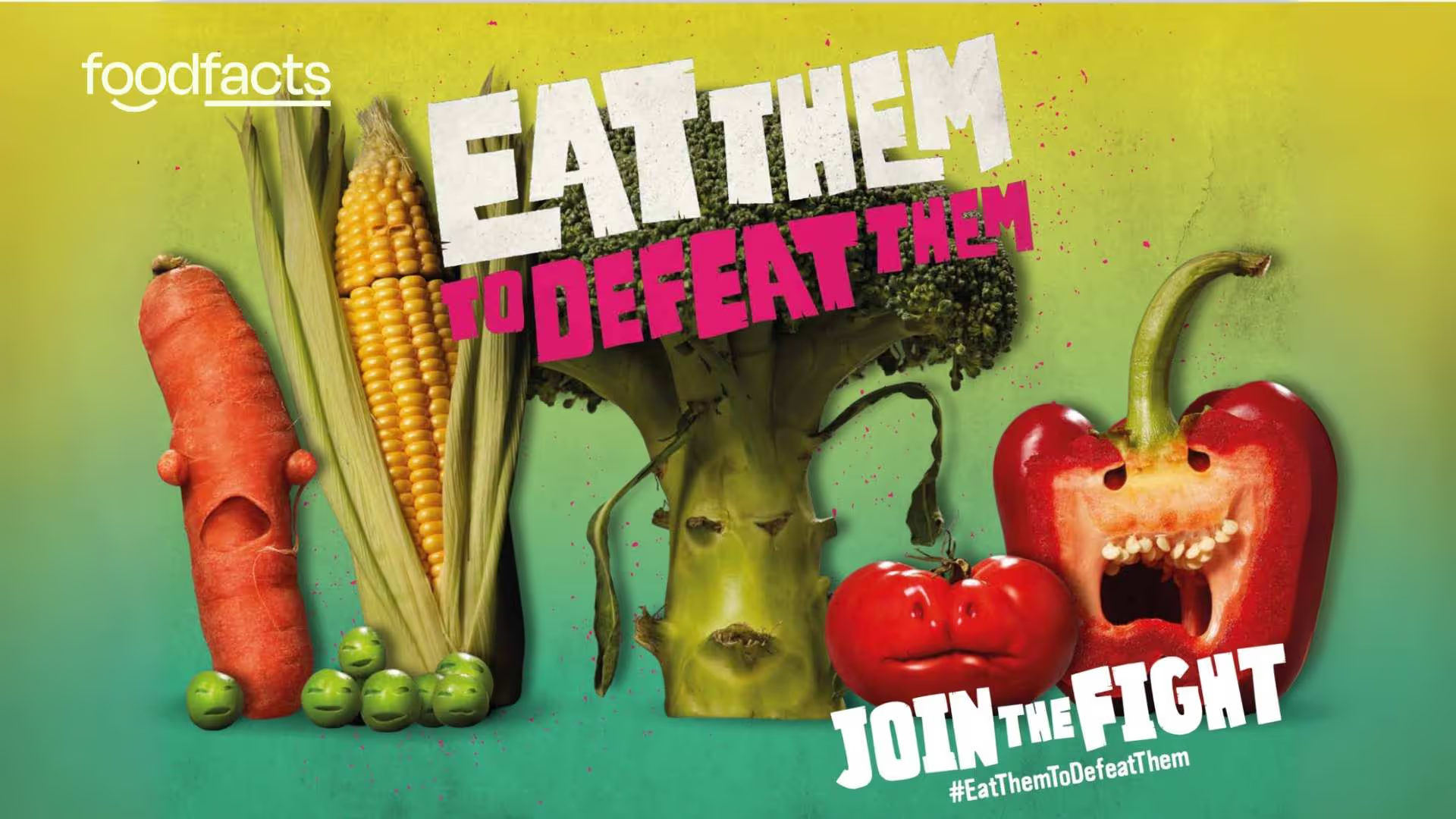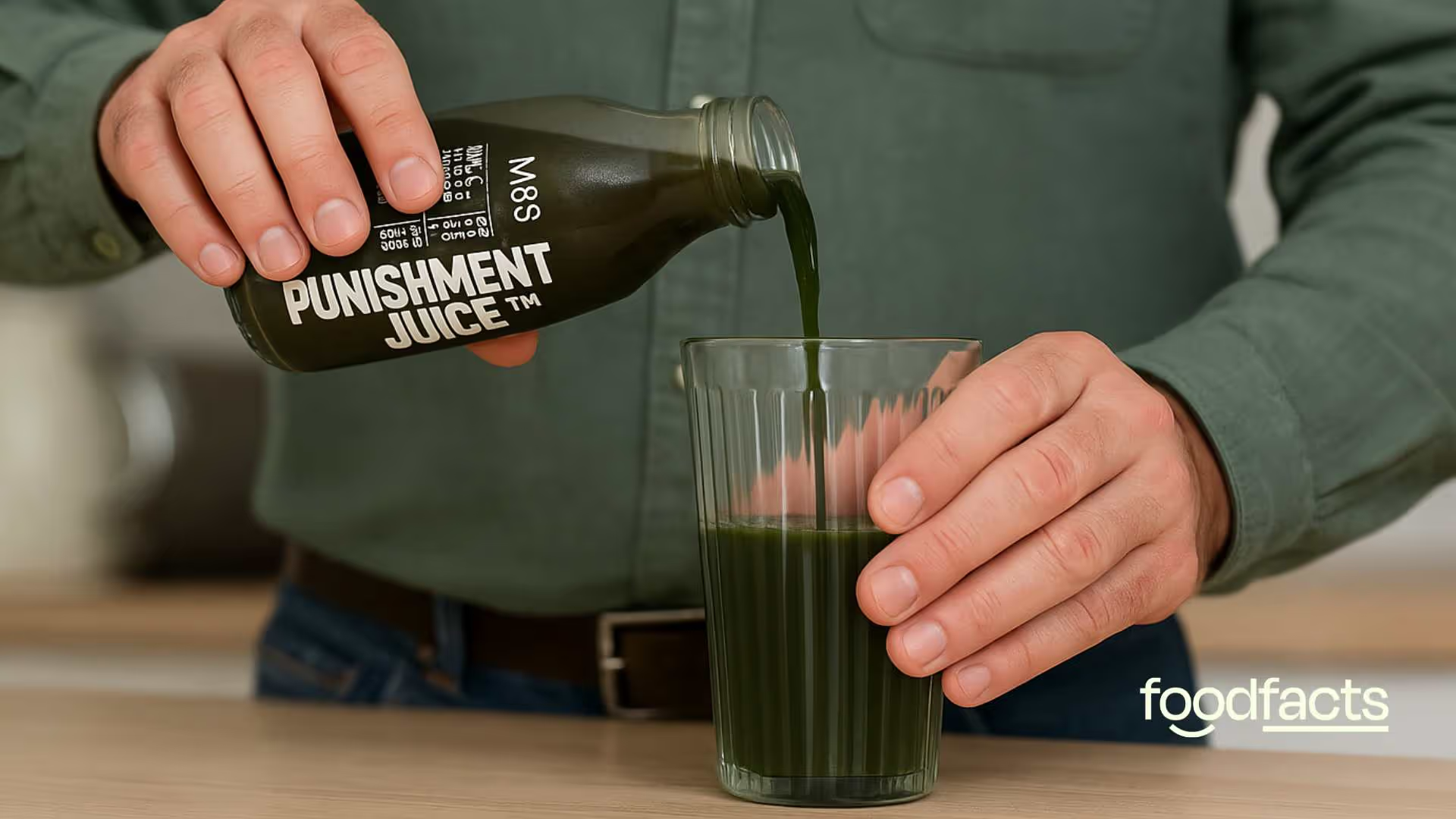
Why our vegetable marketing needs a serious rethink, starting with our kids





Coral Red: Mostly False
Orange: Misleading
Yellow: Mostly True
Green: True
Learn more about our fact-checking policies
Have you heard of 'Punishment Juice'? Marketed humorously by M&S, this seven-vegetable concoction, including celery, kale, spinach, and spirulina, might seem innocently playful, but it actually reflects a serious problem in how we frame vegetables: as punishment rather than pleasure.
Commodifying Guilt: A Troubling Trend
The whimsical marketing of 'Punishment Juice' reinforces the problematic notion that vegetables are inherently unpleasant, a penance rather than a pleasure. Although tongue-in-cheek, such framing plays into adult cynicism about healthy eating, perpetuating disordered thinking and unnecessarily moralising food choices. In a society where diet culture is already prevalent, reinforcing guilt around food choices can be harmful, especially when this messaging trickles down to children.
Playful but Problematic
Campaigns like the highly successful "Eat Them To Defeat Them" have made significant strides in increasing vegetable consumption among children. By framing vegetables as 'evil invaders' to be conquered, the campaign cleverly turns a common childhood aversion into a playful challenge. But while effective, this strategy still suggests that vegetables are inherently unappealing and can deepen children’s resistance to eating them long-term.

A Global Perspective: Celebrating Vegetables
In cultures like Japan, vegetables aren't moralised or viewed as punishment. Instead, they’re deeply embedded into daily food rituals and treated as delicious, valued foods, seamlessly woven into cultural traditions without the baggage of ‘good’ or ‘bad’ labels.
This contrast highlights the shift our own food culture in the UK desperately needs.
Building a Better Relationship with Food
To truly foster healthier eating habits, we must rethink our relationship with vegetables, beginning with childhood experiences. Rather than presenting vegetables as obligatory or punitive, we should encourage exploration, participation, and joy.
Initiatives like the Hackney School of Food provide powerful examples of this approach. Here, children grow, pick, cook, and taste vegetables themselves, sparking genuine enthusiasm and pride in their culinary creations. Seeing five-year-olds eagerly sampling fresh sorrel from the garden or Year 5 students proudly preparing dishes with olives and sundried tomatoes vividly illustrates how a positive relationship with food can be nurtured.

Reframing Vegetables: Creativity Without Villains
It's entirely possible, and necessary, to craft creative, engaging marketing that doesn't villainise vegetables. By reframing vegetables as tasty, familiar parts of our everyday meals, we can build a healthier, more joyful food culture. Let’s inspire curiosity, participation, and enjoyment, rather than reinforcing outdated narratives of obligation and guilt.
After all, eating well should be delicious, celebrated, and free from judgement.

Stand Against Nutrition Misinformation
Misinformation is a growing threat to our health and planet. At foodfacts.org, we're dedicated to exposing the truth behind misleading food narratives. But we can't do it without your support.



foodfacts.org is an independent non-profit fact-checking platform dedicated to exposing misinformation in the food industry. We provide transparent, science-based insights on nutrition, health, and environmental impacts, empowering consumers to make informed choices for a healthier society and planet.

Was this article helpful?















.svg)
